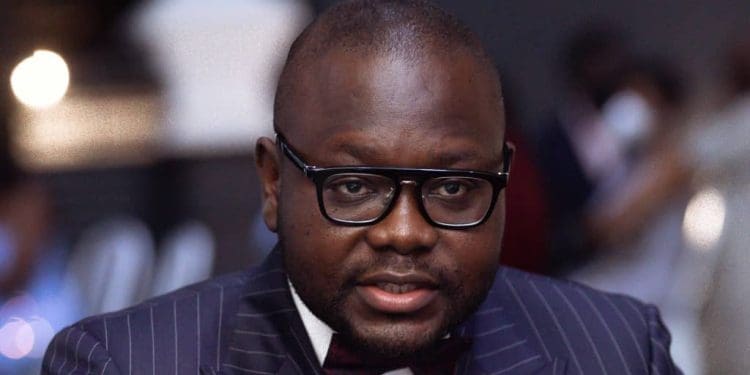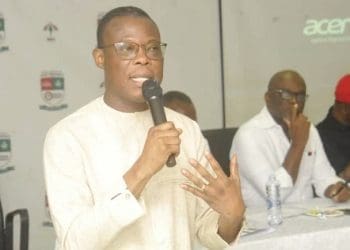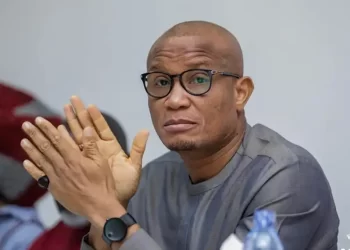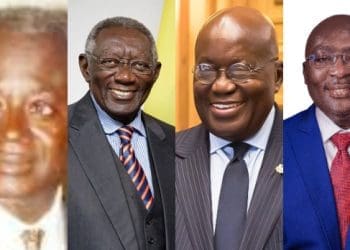Former Roads and Highways Minister and Member of Parliament for Bantama, Francis Asenso-Boakye, has cautioned the government against abandoning the ongoing dualisation of the Accra-Kumasi road, warning that replacing it with a brand-new six-lane expressway would amount to wasteful spending, poor planning, and a breach of the constitutional principle of continuity in governance.
His remarks come in response to President John Dramani Mahama’s recent announcement that his government will begin constructing a new six-lane expressway between Accra and Kumasi in 2026, with completion promised before he leaves office — a timeline of less than three years.
But Asenso-Boakye, who served as Roads Minister until January 2025, says the president’s plan, while headline-grabbing, is fraught with contradictions, financial risks, and political opportunism.
Over 100km already dualised
According to Asenso-Boakye, substantial work has already been completed on the current Accra–Kumasi dualisation project, which dates back to President Kufuor’s administration, was neglected under the Mills/Mahama government, and was revived and accelerated under President Akufo-Addo.
He disclosed that over 100 kilometres of the 240-kilometre corridor have already been dualised, with an additional 46 kilometres actively under construction.
Key segments currently being worked on include major bypasses at Anyinam, Osino, Enyiresi, and Konongo, with progress ranging between 58% and 100%.
“When these sections are completed, only 94 kilometres will remain to be dualised. That is real, tangible progress within a coherent national strategy,” Asenso-Boakye argued.
“Why start over?” — MP questions logic
The Bantama MP expressed concern over what he describes as a poorly conceived and potentially unlawful shift in infrastructure priorities.
“Instead of completing this existing project — whose scope, cost, and design are already known — known-the government now proposes to start afresh with an entirely new expressway, without a completed feasibility study, without an established cost, and without confirmed funding,” he said.
He further revealed that during a recent press briefing, the current Minister for Roads and Highways admitted that the Ministry was still in the process of hiring a consultant to undertake the feasibility study for the new expressway.
“This stunning admission raises the obvious question: how was the President able to determine a start and completion date for a project whose design, cost, and funding are all unknown?” he asked. “This defies logic and prudent planning.”
Constitutional breach and political undermining
Citing Article 35(7) of the 1992 Constitution, which mandates successive governments to continue with existing programmes in the interest of national development, Asenso-Boakye said the proposed abandonment of the current dualisation works amounts to a flagrant violation of this directive.
“What we are witnessing is not governance in the national interest. It is a politically driven effort to undermine the achievements of a previous administration by discarding an ongoing national project in favour of an untested, undefined alternative,” he said.
Fiscal recklessness amid national hardship
The former minister also questioned the financial prudence of initiating a completely new expressway project at a time of widespread fiscal stress.
“A brand-new six-lane expressway will likely involve new alignments, fresh compensation payments, environmental impact assessments, and a new procurement process,” he noted.
“It will place a heavier financial burden on the state — at a time when government is already struggling to finance ongoing projects nationwide.”
He acknowledged that the current dualisation project had experienced some cost variations, but said such changes are normal in large-scale infrastructure works and could be resolved within existing legal and contractual frameworks.
“To abandon a major national project because of unresolved variations not only undermines continuity but sets a dangerous precedent for future infrastructure development,” he warned.
Not against development, but for strategy
Clarifying his stance, Asenso-Boakye said his critique is not an attack on infrastructure development, but a call for strategy, continuity, and cost-effectiveness.
“We support every effort that brings progress to the people of Ghana. But progress must be strategic, cost-effective, and aligned with long-term national goals — not tailored to satisfy the political egos of a few individuals,” he said.
He maintained that the Accra–Kumasi dualisation is a “technically sound, economically justified, and legally valid” national project and should not be sacrificed for political optics.
“To abandon it midway in favour of an unfunded and undefined expressway is to betray the public trust, waste scarce resources, and derail continuity in our infrastructure agenda,” he said.
The road forward
Asenso-Boakye concluded his statement with a passionate plea: “Let us stay the course, not start over for political showmanship. Ghana deserves better. Our people deserve better.”
His remarks are likely to spark further debate on the future of Ghana’s most strategic transport corridor, with many observers watching closely whether the Mahama administration will proceed with its new expressway vision or reconsider in favour of building on existing gains.












